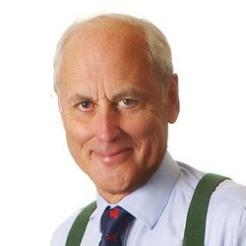The Red Tape Task Force today presented Nick Hurd, the minister for civil society, with its report calling for a more “common sense” approach and measures to encourage volunteering and social investment.
Led by Lord Hodgson of Astley Abbotts (pictured), the Task Force’s report is titled Unshackling Good Neighbours and examines the reasons people are put off giving their time or money, and the barriers to growth faced by charities and civil society organisations.
Nick Hurd welcomed the report and said he would look into implementing many of the recommendations, while the NCVO urged the government to take action “as a matter of urgency”.
Encouraging participation
One of the key recommendations was to reform the law to clarify volunteer and trustee liability, with Lord Hodgson saying: “There is a perception that you are liable to be sued and that is not how it is.”
He also suggested that the charity tribunal might be asked to develop a “reasonableness test”, whereby volunteers, including trustees, could have a clearer understanding of what reasonable conduct constitutes.
Nick Hurd, meanwhile, announced that he had set up a working group to engage the insurance industry and develop consistency in the way insurers treat charitable activities.
The Task Force said it had already claimed a victory on the issue of volunteer drivers, with the Association of British Insurers promising to revise its definition of ‘social driving’.
The present definition reportedly puts people off using their cars for volunteering due to increased insurance premiums.
Social investment
Elsewhere, Lord Hodgson called for the creation of a new type of ‘social investor’, along the same lines as the existing category for commercial companies of ‘experienced investor’, to make it easier for people to invest in charities.
The report also called for the simplification of licensing for fundraising events, measures to ensure the unemployed are made aware that volunteering won't affect their benefits, and the elimination of duplicate regulatory requirements from the likes of the Charity Commission and Companies House.
Ending knee-jerk reactions
One significant suggestion was a new regulatory mechanism to allow a government to have a “period of reflection” in the aftermath of an accident or major event, thereby avoiding unnecessary ‘knee-jerk’ legislation.
Under these plans, minsters facing pressure to introduce new regulations could set up a Speedy Treatment of Regulatory Events (STORE) panel made up of experts and members of the public to examine the facts and establish if there was “systemic defect”.
Lord Hodgson said: “By the time the panel meets some of the heat will have gone out of the situation.”
Progress report in one year
Nick Hurd took the opportunity to invite the Task Force to report back on the government's progress in one year’s time.
Previous working parties on red tape in 1994 and 2005 have not been invited back to pass judgement on the government’s progress.
Responding to this decision, Lynne Berry, chief executive of WRVS and a Task Force member, told Civil Society: “We’re really delighted by this rigorous approach. It’s a sign of a real commitment to lift the burdens on charities and social enterprises.”








